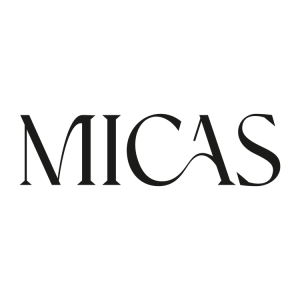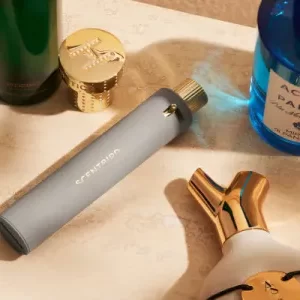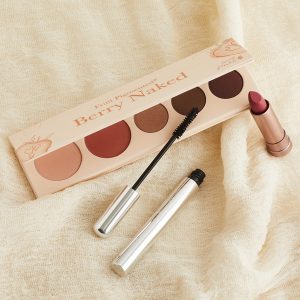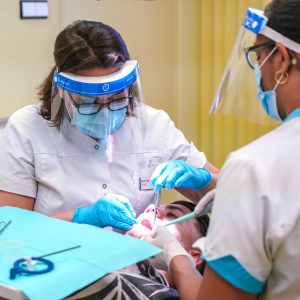Uses Of Dermal Fillers
Soft tissue fillers are most commonly used on the face where they can fill in wrinkles and fine lines as well as add volume and plumpness. Fillers can also treat wrinkles in other body areas and to conceal scars. Top brands include. Aquashine, Belotero, Radiesse, Restylane, Juvederm, Dermalax, Revolax and Ellanse
Facial area
Dermal fillers are most commonly used on the face to fill in and smooth out age-related wrinkles. These areas include And similar to Botox.
Nasolabial folds, which are fine lines running from the nose to the borders of the lips.
Marionette lines, which are vertical lines running from the lip borders to the chin.
The area between the eyebrows (sometimes used in combination with neurotoxins).
The tear trough or the area below the lower eyelid.
The chin.
Uses for Dermal Fillers You Didn’t Know About
Depending on the filler, the treatment can last a year or longer. And will not impact a patient’s ability to wear earrings afterward. The procedure can be redone once the filler diminishes over time. And can be put together with other treatments performed on the same day – at your provider’s discretion, of course.
As we age, we see signs of skin damage and volume loss everywhere. And our earlobes are no exceptions. Heavy accessories only add to the effects of gravity and volume loss. An increasing number of patients are addressing this concern with injectable fillers. Rejuvenating their lobules in a safe, long-lasting, and relatively painless way.
Small earlobes can also be enhanced with dermal fillers. Giving them a rounder look by enlarging the outer portion of the lobule.
Knee rejuvenation is trending. Dermatologists and plastic surgeons all over the country are proving that signs of aging above the knees can be masked with Sculptra. The poly-lactic acid filler tightens and improves skin quality in this area. By helping the body recreate collagen that’s been lost over time.
Tight, lifted, and wrinkle-free knees could be just the improvement you’re looking for. When you slip on your favorite summer dress – you know, the one that somehow just doesn’t seem to look as good on you as it did 10 years ago. Despite all the squats and lunges you do.
Hollowing temples are a common sign of aging, yet often this ever-important area is overlooked during cosmetic consultations. As we age, the bones around the temple area often become more apparent and can, in some ways, make us look sickly and generally unhealthy.
There are two main types of fillers doctors use to enhance this particular area: poly-lactic acid fillers (like Sculptra), and hyaluronic acid fillers (like Juvederm). Poly-lactic acid fillers work by inciting collagen growth (a process called fibroplasia) through multiple treatments over several months, gradually producing results that can last as long as 2 years before finally diminishing.
The filler is injected between the metatarsal and phalangeal bones of the big toes to add padding that has been lost, therefore reducing pressure and pain. Also, other areas of the foot subject to intense pressure can be injected with filler for the same effect. Risks beyond swelling, bruising, and damage to nearby structures include using an inappropriate filler or “over-filling” the area, which can worsen the discomfort by making it more difficult to walk/stand
Again, as with any procedure, make sure to fully investigate the provider you intend to hire for this treatment. Also, remember that many providers have their preferences for certain fillers, whether they be “thin” with low viscosity or “thick” with a higher viscosity.
4. Lines around the neck
Many dermatologists and plastic surgeons have been trained in this art of neck filling. However, great caution when discussing the treatment and assessing the provider’s experience level. There is no shortage of complications that can arise, so be sure to fully vet your provider before undergoing this procedure.
One of the most common fillers used is Belotero, a “thin” hyaluronic acid filler with a low risk of the dreaded “tyndell effect” (a blueish hue given to skin when the dermal filler is injected too close to the surface). Again the costs range depending on the number of syringes but are usually between $500 and $2,000. The results last anywhere from 9 to 12 months.
Also, note that neck filler is not a good option for patients with considerable skin laxity requiring more aggressive tightening.
Uses of dermal fillers include butt injections. As discussed previously for temple filling with Sculptra, this versatile poly-L-lactic acid filler helps replace collagen and adds great volume. By discussing your needs with your provider and properly mapping out the areas in which they will give you fullness and lift, the Sculptra filling technique can be utilized to great effect.
The biggest challenge is not just preparing financially for the procedure. But finding the provider who is the best trained and most well-versed in the technique. All the more reason to send out your request through Olive Beauty Shop to find a provider who performs the procedure.
Radiesse is one of the most common hands rejuvenation dermal fillers. It’s a calcium gel filler that corrects the volume loss and hides the visible veins, tendons, etc. that make hands appear aged. Having a provider injecting the area is paramount, as there are a myriad of adverse effects that could occur if improperly done.
Uses of Dermal Fillers include chin augmentation. Before the advent of dermal fillers to the chin area, chin augmentation with implants were the best, and pretty much only, option for patients. However, implants are a one-size-fits-all option that usually isn’t customizable or adjusted based on the patient’s facial profile, ethnicity, or needs. With the approach afforded to providers through fillers, not only can the projection now be addressed from patient to patient, but the shape of the chin can also be changed to give a round face a more heart-shaped look – or anything in between.
Ellanse, Juvederm, Restylane, and Belotero are currently the most common fillers for non-surgical chin augmentation procedures. Prices vary between $2,000 to $6,000, depending on the number of syringes. The procedure itself takes anywhere from 5-30 minutes and is only mildly painful.
Most patients require several treatments and adequate upkeep. But the results can be life-changing for those who suffer tremendously from acne scars. Results are noticeable after the first session with a trained provider, but since Bellafill works with your skin’s natural processes. Patients can continue seeing improvement over a year after the treatment.
This specific acne scar treatment is meant for patients with moderate to severe scarring. Who are not allergic to Bellafill and are at least 21 years old. Common side effects are similar to most fillers: swelling, bruising, and tenderness that resolves usually after a week. Other more severe side effects can also occur and should be discussed with your provider as you further explore this option.
Alongside Bellafill for acne scar treatments. Many providers prefer the use of hyaluronic acid fillers (like Belotero and Restylane) in light of their comfort with this type of treatment. They too provide immediate results and continue to modify over months. By breaking up some of the scarred down bands that pucker the skin. The hyaluronic acid fillers will continue to lift the scars for about a year. Generally used in combination with other modalities such as fractional non-ablative lasers and chemical peels.










